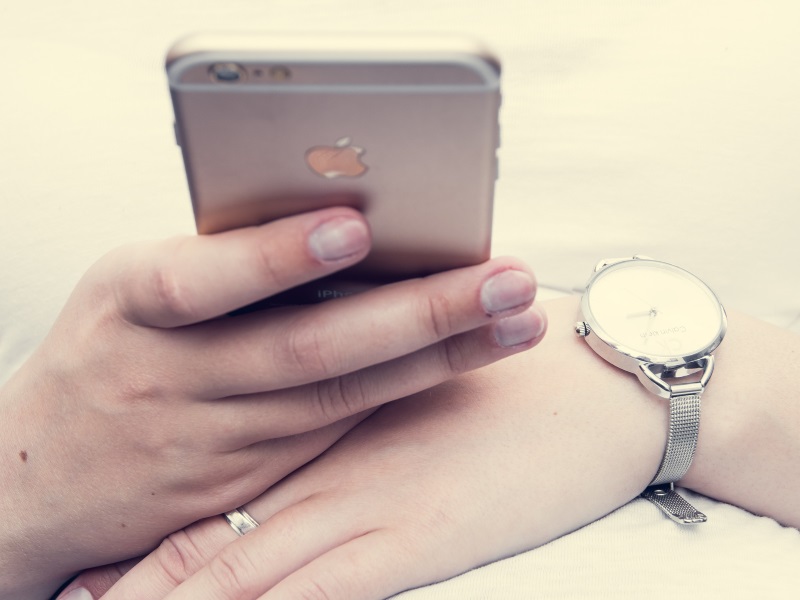- Home
- Science
- Science News
- Text Message Reminders Can Help Reduce Blood Pressure: Study
Text Message Reminders Can Help Reduce Blood Pressure: Study

"High blood pressure is a common condition that can be managed successfully with tablets. Yet, even in health systems where that medication is freely available, people can struggle to keep taking the tablets regularly," said professor Andrew Farmer, from Oxford's department of primary health care sciences.
"Two common issues are not turning up to collect medicine - so running out - or forgetting to take tablets. We knew that text messages had worked to support people with HIV/Aids to stick to their treatment and improve their health as a result. We wanted to see whether the messages could work for blood pressure treatment in a deprived community," he added.
The study, of over 1,300 adults with high blood pressure in the Cape Town area, compared text message reminders and interactive text messaging to a control group receiving standard care.
Patients were randomly split into three equal-sized groups. All patients received written information about high blood pressure and healthy living.
The first group then received weekly messages at a time and in the language they chose.
The second group received the same text messages but were able to interact with the automated service by calling to change or cancel appointments or change the language or time of the messages. The third group received standard care.
After 12 months, all three groups had reduced blood pressure. However, those who had received text messages had a slightly greater reduction in their blood pressure and were more likely to have achieved a controlled blood pressure.
Those who had had reminders were also more likely to have taken their medicine at least 80 percent of the time - almost two thirds of those getting information messages reached that standard compared to just under half of those receiving standard care.
The study findings appeared online in the American Heart Association journal Circulation.
For the latest tech news and reviews, follow Gadgets 360 on X, Facebook, WhatsApp, Threads and Google News. For the latest videos on gadgets and tech, subscribe to our YouTube channel. If you want to know everything about top influencers, follow our in-house Who'sThat360 on Instagram and YouTube.
Related Stories
- Samsung Galaxy Unpacked 2025
- ChatGPT
- Redmi Note 14 Pro+
- iPhone 16
- Apple Vision Pro
- Oneplus 12
- OnePlus Nord CE 3 Lite 5G
- iPhone 13
- Xiaomi 14 Pro
- Oppo Find N3
- Tecno Spark Go (2023)
- Realme V30
- Best Phones Under 25000
- Samsung Galaxy S24 Series
- Cryptocurrency
- iQoo 12
- Samsung Galaxy S24 Ultra
- Giottus
- Samsung Galaxy Z Flip 5
- Apple 'Scary Fast'
- Housefull 5
- GoPro Hero 12 Black Review
- Invincible Season 2
- JioGlass
- HD Ready TV
- Laptop Under 50000
- Smartwatch Under 10000
- Latest Mobile Phones
- Compare Phones
- Redmi Turbo 4
- Vivo Y200+
- Lava Yuva 2 5G
- OnePlus Ace 5
- OnePlus Ace 5 Pro
- Oppo A5 Pro 5G
- Vivo Y29 5G
- Honor Magic 7 RSR Porsche Design
- Asus Zenbook S 14
- MacBook Pro 16-inch (M4 Max, 2024)
- Honor Pad X9 Pro
- Honor Pad V9
- boAt Enigma Gem
- boAt Enigma Daze
- Sony 65 Inches Ultra HD (4K) LED Smart TV (KD-65X74L)
- TCL 55 Inches Ultra HD (4K) LED Smart TV (55C61B)
- Sony PlayStation 5 Pro
- Sony PlayStation 5 Slim Digital Edition
- Blue Star 1.5 Ton 3 Star Inverter Split AC (IC318DNUHC)
- Blue Star 1.5 Ton 3 Star Inverter Split AC (IA318VKU)

















